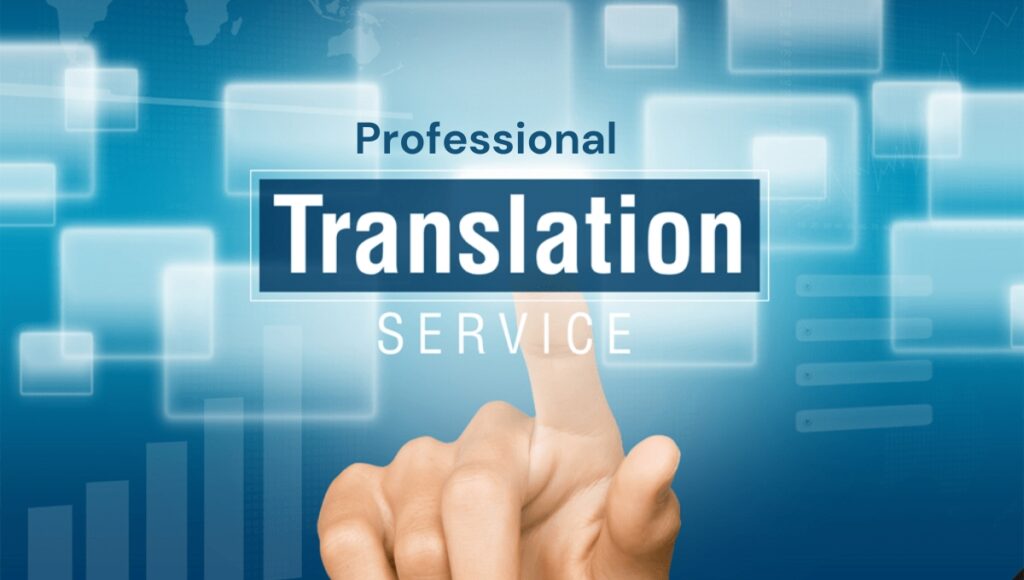
In today’s interconnected digital landscape, the ability to communicate across cultures is not just an advantage—it’s a necessity. Whether you’re a multinational corporation launching a product in a new market, a healthcare provider serving a diverse community, or an individual needing to translate personal documents, the demand for accurate and reliable translation services has never been higher. This comprehensive guide will explore the multifaceted world of translation, helping you understand its importance, the different types available, and how to choose the perfect partner for your linguistic needs.
Why Professional Translation is a Critical Business Investment
Many businesses make the critical mistake of viewing translation as a simple, mechanical task—something that free online tools can handle. This approach can lead to embarrassing errors, cultural missteps, and ultimately, a loss of credibility and revenue. Professional translation is an investment in your brand’s global integrity.
Accurate translation builds trust with your new audience. It shows respect for their language and culture, signaling that you are committed to serving them properly. This level of care can be the differentiator that wins customer loyalty in a competitive market. Furthermore, it mitigates significant risk. A mistranslated instruction manual, legal clause, or medical information can have serious, even legal, consequences. Professional services ensure precision, context, and cultural appropriateness, protecting you from potential liabilities.
Beyond Word-for-Word: The Different Types of Translation Services
The field of translation is not monolithic. It encompasses a wide range of specializations, each requiring a unique skill set and expertise. Understanding these categories is the first step in finding the right service for your project.
Certified Document Translation
This is one of the most common and legally necessary forms of translation. Certified translation involves official documents like birth certificates, marriage licenses, academic transcripts, legal contracts, and immigration papers. A certified translator provides a signed statement attesting to the accuracy and completeness of the translation, which is often required by government agencies, universities, and courts. The accuracy here is non-negotiable, as the entire process depends on the document’s legitimacy.
Technical Translation
Technical translation deals with highly specialized content such as user manuals, engineering specifications, scientific research papers, and software strings. It requires translators who are not only linguistically proficient but also deeply knowledgeable in the specific technical field. They must understand complex terminology and concepts to ensure that instructions are clear, precise, and safe for the end-user.
Medical and Pharmaceutical Translation
In the healthcare sector, there is zero room for error. Medical translation covers a vast array of materials, including patient consent forms, clinical trial protocols, drug information leaflets, medical device manuals, and research articles. Translators in this niche must have a strong background in medicine, pharmacology, or a related life science to handle sensitive and life-impacting information with the utmost accuracy.
Marketing and Website Localization
This is perhaps the most creative form of translation. Localization goes beyond literal translation to adapt a message for a specific cultural audience. It involves translating websites, advertising campaigns, slogans, and social media content in a way that resonates emotionally and culturally with the target market. This process considers local idioms, humor, values, and social norms to ensure the message is not just understood but also effective and engaging. A direct translation of a marketing slogan can often fall flat or, worse, become offensive.
Legal Translation
The legal field is built on precision and nuance. Legal translation requires an expert with a firm grasp of both the source and target legal systems. Documents like contracts, statutes, witness statements, patents, and litigation materials must be translated with exacting accuracy to maintain their legal validity. A minor error can change the meaning of a clause and have monumental financial or legal repercussions.
Human Expertise vs. Machine Translation: Finding the Right Balance
The rise of AI and Neural Machine Translation (NMT) tools like Google Translate and DeepL has revolutionized how we access instant translation. These tools are incredibly useful for getting the gist of a foreign language text, translating a menu, or facilitating basic communication.
However, they are no substitute for a professional human translator when quality, nuance, and context matter. Machines struggle with cultural subtleties, humor, sarcasm, and industry-specific jargon. They cannot replicate the creative flair needed for marketing nor ensure the absolute precision required for legal or medical documents.
The most effective modern translation workflows often involve a hybrid approach: using machine translation for a rough first draft, which is then meticulously edited and polished by a human expert (a process known as MTPE – Machine Translation Post-Editing). This combines speed with quality, ensuring the final product meets professional standards.
How to Choose the Right Translation Partner
Selecting a translation service is a crucial decision. Here are the key factors to consider:
-
Industry Specialization: Always look for a provider or individual translator with proven experience in your specific field. A literary translator is not the right choice for a technical manual.
-
Native Linguists: The best translations are done by translators working into their native language. They have an innate understanding of linguistic nuances and cultural context that a non-native speaker cannot replicate.
-
Quality Assurance Processes: Reputable agencies have robust QA steps, including editing by a second linguist (a process called revision) and proofreading. Inquire about their process to ensure your project will be thoroughly vetted.
-
Data Security: If you are translating sensitive business, legal, or medical information, data security is paramount. Ask potential providers about their confidentiality agreements, data handling policies, and security certifications like ISO 27001.
-
Technology and Expertise: A good agency will utilize Translation Memory (TM) tools. This software stores previously translated segments, ensuring consistency across all your projects and reducing costs for repetitive text.
-
Reviews and Testimonials: Look for client feedback and case studies. A proven track record in projects similar to yours is a strong indicator of reliability.
The Future of Translation Services
The industry continues to evolve with technology. We are seeing greater integration of AI-assisted tools that enhance human translators’ productivity and consistency. The demand for localization is also expanding beyond text to include multimedia content like video subtitling, voice-over work, and transcreation for video games and apps. As the world becomes even more connected, the role of the professional translator will remain vital—shifting from mere word-conversion to that of a cultural consultant and communication strategist.
Investing in professional translation is investing in clear, effective, and respectful global communication. By choosing the right service for your needs, you break down language barriers, open new doors of opportunity, and build bridges to a wider world.





